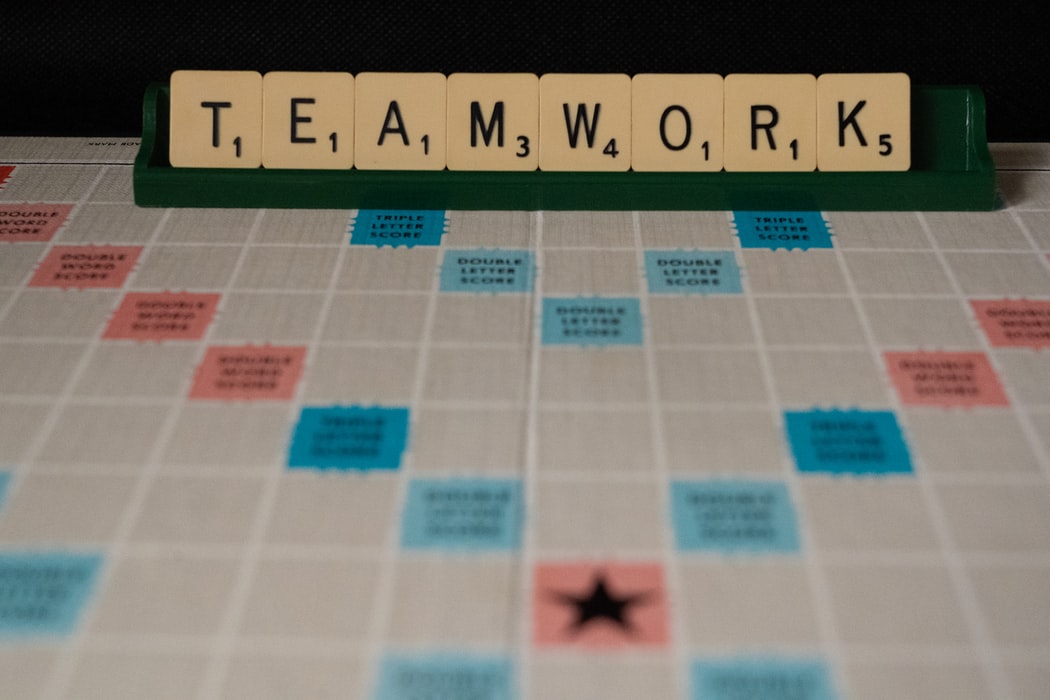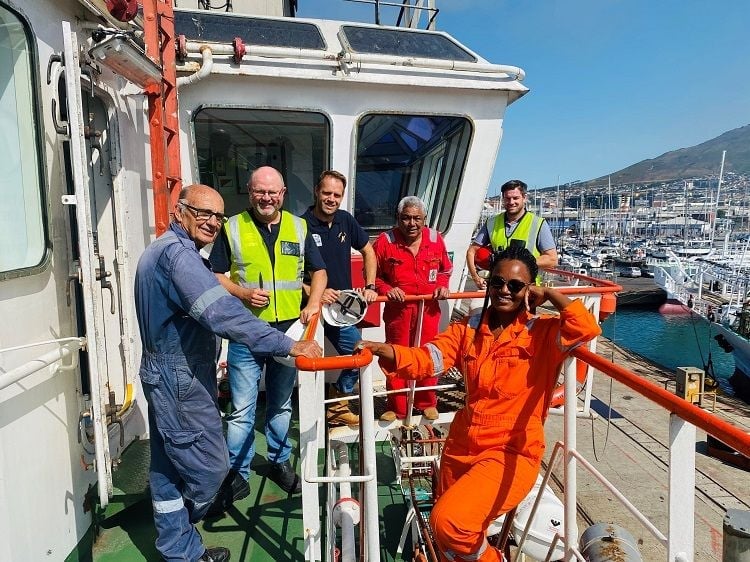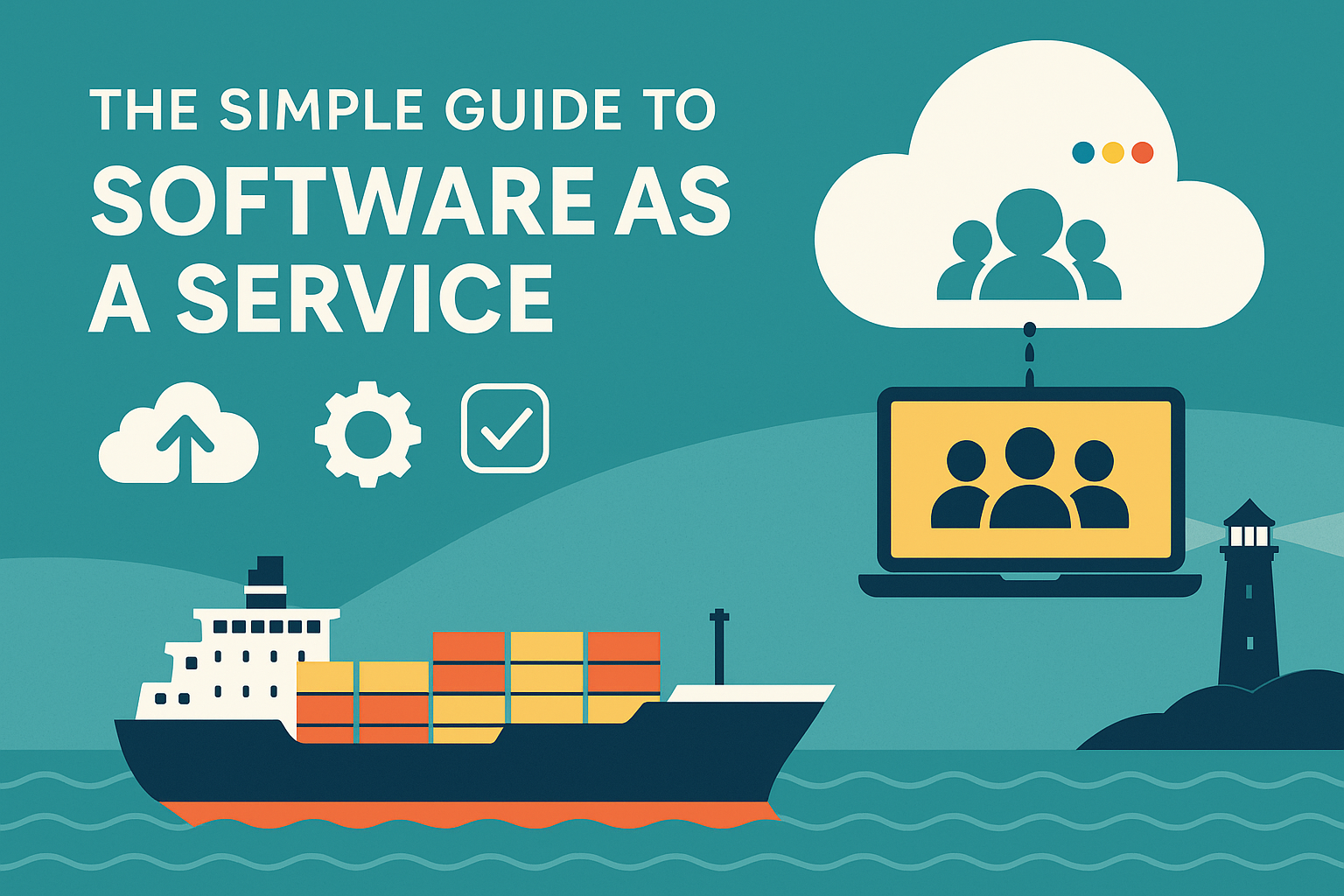Why Collaboration in Maritime Recruitment is Crucial

Collaboration is one of those words that gets thrown around a lot in the modern workplace and as a result it can come to feel a little bit meaningless. However in maritime recruitment and crew planning, collaborating with your coworkers can really mean the difference between an efficiently run department and one that is struggling to meet crew change dates.
The foundation of any flourishing business is collaboration. A more engaged staff, higher levels of trust, and better performance are all characteristics of collaborative workplaces.
Collaboration and teamwork go hand in hand - and when it comes to the hiring of personnel and the planning of crew, you need that level of joint participation to ensure that all the different aspects of maritime recruitment and crew planning are correctly taken care of.
So what actually is collaboration? The Cambridge Dictionary defines it as "...the situation of two or more people working together to create or achieve the same thing..."
In recruitment and planning in the maritime industry that means making sure that each member of the team is working to the best of their abilities and contributing their skills and knowledge to ensure that the right seafarers are lined up for the right vessels at the right time. (And of course to make sure that all documentation is present and correct.)
Read more: 10 Ways to Build a Collaborative Team in Maritime Recruitment
But while the idea of collaboration might be a pretty simple concept to understand, making sure that your teams are willing and able to collaborate is another thing entirely.
Follow these steps for better collaboration in your maritime recruitment team
Most of us collaborate in some sense at work - in fact we probably don’t really think about it because the practice is so integral to the majority of workplaces. And that includes vessels too, where seafarers most definitely need to work as a team.

But with that said, it still doesn’t hurt to reassess your processes and tools to make sure that your teams are able to collaborate in the most effective and efficient manner possible.
Not convinced that collaboration is the key to a well-oiled department in your shipping company or manning agency? Maybe these 5 reasons will convince you.
1. Let’s say you’re trying to find a Chief Engineer to join a vessel on a certain date. Not an unusual scenario by any means.
But what if you’re having real trouble finding someone with the right amount of experience, who has worked on that particular type of vessel before, who has all their documentation and visas lined up and who is available for the date you need them.
Sometimes the stars just don’t align and if you’ve exhausted every contact in your seafarer database, what do you do? That vessel won’t be able to sail without a Chief Engineer onboard meaning that giving up is not an option.
You ask your coworkers for help. You ask them to dig deep and see if they know of an available CE. If you’re an employer, you reach out to manning or crewing agencies. In other words, you collaborate with others to solve the issue.
Read more: Organizational Tips for Recruiters in the Maritime Industry
2. Collaboration helps coworkers learn from each other. By working more closely and sharing knowledge and ideas, there is always the possibility that one person’s efficient (yet unspoken) way of doing something becomes common knowledge and can help everyone work better.

The thing to bear in mind here is that this should be a proactive exercise. For example, one of your crew managers might always seem to be effortlessly able to find the right seafarer at the right time, whilst others are constantly in a state of stress as crew change day approaches.
Read more: How to Make Crew Change Over Easier Than Ever
What is that one person doing right? Surely it’s not all down to good luck? This is where team meetings, and sharing feedback and knowledge come into the picture.
3. Encouraging collaboration between different teams or departments is also important, particularly in maritime recruitment and crew planning where there are so many plates being spun by any number of people.
Teams need the tools to communicate and share information and they need to be encouraged to not see another department as a hindrance to their workload but as an ally who can help them do their job more effectively.
It also allows issues to be resolved more quickly when everyone is working together towards the same end result.
Collaboration is a means of bringing people together and making an organization a more open, transparent, communicative, and efficiently run business.
4. When teams and people work together, they are more likely to build bonds and trust each other more. This in turn can have a positive knock on effect on employee motivation and morale in your company. After all, who wants to go to work every day only to come up against a brick wall every time they ask a coworker for help? No one.

And of course, the benefit for your shipping company or manning agency is that when your staff are positive and proactive and work well together, staff retention rates are also higher.
Your recruitment managers, crew operators, and personnel officers are more likely to stay with your organization rather than seek work in any one of the other myriad of crewing agencies in the local area.
5. All companies need collaborative teams and people to be more productive.
And nowhere is that truer than in the shipping industry. For maritime recruitment and crew planning operations to run smoothly, your people need to be able to pull together to make sure that every box is checked all the way along the recruitment process.
Collaboration enables department heads to share heavy workloads or intricate operations with many different moving parts amongst their people.
How to get your staff on the same collaborative page
So as we've seen, collaboration among your maritime recruitment and crew planning teams is crucial, but how do you make it actually happen? Here are some pointers:
Communicate expectations and boundaries
You can only reasonably expect your staff to collaborate if they know your expectations.
Set a minimum benchmark for the level of participation you expect from the outset. Better yet, it should be included in your onboarding procedure to show prospective hires that you value teamwork.
Job descriptions for employees should outline their solitary responsibilities and any team-based responsibilities. By distinguishing between these, you're establishing boundaries between what they should be responsible for individually and what they should be working on collectively.
Define the team's goals as frequently as needed
Your team should not only be informed of your goals once a month. Instead, you should discuss your team's objectives daily. To break down organizational silos and maintain productivity, a team must be aware of its individual and collective goals.
Morning meetings that start simultaneously daily promote the sense that the entire team is working together on a particular goal. You can then step back and let your employees establish their daily objectives.
Celebrate and reward teamwork
You promote the ideals that guide your organization when you recognize and reward successful teamwork and collaboration.

Consider both teamwork and individual accomplishments while developing your employee appraisal measures. Make it obvious to your staff that their collective efforts will be recognized and successful collaboration will be rewarded.
Foster a community
The truth is most of our lives are spent working. The team dynamic is strengthened, and employees have a secure atmosphere in which to perform at their best when a trustworthy environment and a common purpose are fostered.
Communities work together to uplift one another for the benefit of the community at large. As a result, this atmosphere has a strong sense of community, and the same is true in the workplace.
Begin fostering your community by establishing a robust onboarding procedure, planning frequent team-building activities, asking for input (and acting on it), and maintaining open communication lines.
Invest in systems that allow easy collaboration
Effective teamwork requires knowing who is responsible for what. Bottlenecks are eliminated, and a clear route is created for successful cooperation when you have mechanisms that make it simple for your staff to access their resources.
In maritime recruitment and crew planning, that means everyone in the company and the manning agency are on the same page regarding what is needed and who will be embarking and disembarking.
In the past, industry leaders claimed this synchronization was impossible. There simply wasn't an end-to-end software solution for the marine industry.
And that's where Martide comes in. An all-in-one maritime recruitment platform and crewing software system for small to medium-sized shipowners, ship managers and manning agencies.
How Martide can help you work collaboratively
Martide was designed to fulfill a need for small to medium sized shipowners and ship managers. Industry leaders told us there wasn’t an end-to-end crewing software solution specifically for the maritime industry that enabled them to pull all of their different systems together so that their people could work together as a team. So we built one.
A feature to grow your seafarer database
Take the difficulty of trying to find that one ideal seafarer for a vessel at short notice that we spoke about earlier. It’s a nightmare isn’t it? That’s why we created the Recruitments function.
Unlike Assignments, which is where you hire a specific seafarer for a specific vessel on a specific contract, Recruitments lets you post open-ended, non-specific job posts so that you can add candidates to the database so you - or your coworkers - can potentially hire them in the future.

Read more: This Martide Feature Helps You Grow Your Candidate Database
For example: If you often find yourself short of ETOs for your (or your clients’) bulk carriers, create a job post in Martide asking for exactly that. There’s no date and no vessel - you’ll just be able to add any interested applicants to the system for future hiring. Oh, and it's also free - did we mention that?!
Martide’s 360 degree messaging system
Martide’s inbuilt message inbox enables employers, manning agents and seafarers to communicate easily without leaving our website. Better still, the highly visual and organized inbox means that you can see at a glance everything that’s happening with that conversation thread.
Collaborate with other Martide users in your company
Our User Accounts feature enables employers to invite coworkers or manning agents that they work with to create a Martide account so they can give them administrative rights to the backend of the platform. They also allow manning agents to invite their own coworkers too.
Meanwhile User Groups allows employers and manning agents to delegate by adding teams (groups) and setting permissions so you can customize what your people can do when logged in to the Martide website.
Read more: Why You Need to Learn to Let Go & Start Delegating
This way you’ll know that everyone is working on the same page, helping to make maritime recruitment and crew planning easier and more efficient.
Secure online document management and storage
When you keep copies of all documents online, everyone will know where they are in the event that they need to access them.
From seafarer documents and certificates, medical checks and visas to passports and seamen’s books, we make it effortless for your people to collaborate by ensuring that all the paperwork everyone needs is right there in front of them as soon as they log in to Martide, no matter where they are or what device they're using.

Collaboration in maritime recruitment: Conclusion
As we’ve seen, companies and coworkers that collaborate are more efficient, more productive - and often happier too.
As a shipowner, ship manager or crewing or manning agent, don’t you owe it to your people to give them the best tools for collaboration?
When everyone is all using the same platform - such as Martide - it helps everyone work together using the same processes and recruitment pipelines. And that means that a lot of the typical - but unnecessary - headaches of maritime recruitment and crew planning are eliminated.
What to do next
If you’re a small to medium-sized shipowner or manager, or a manning / crewing agent, get in touch with us today and we’ll be happy to tell you more about how we can help you run a tighter ship!
This blog post was first published on November 30th 2021 and updated on September 19th 2023

Eve Church
Eve is Martide's content writer, publishing regular posts on everything from our maritime recruitment and crew planning software to life at sea. Eve has been writing professionally for more than two decades, crafting everything from SEO-focused blog posts and website landing pages to magazine articles and corporate whitepapers.
UK

is the only site for maritime jobs



